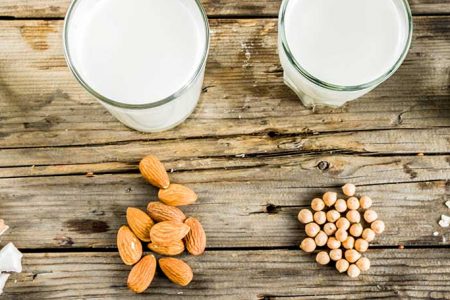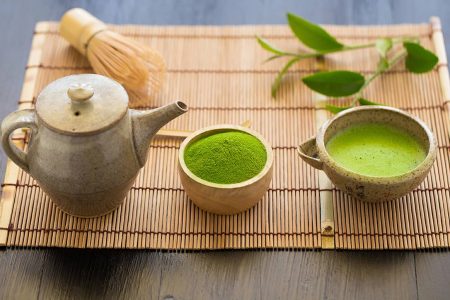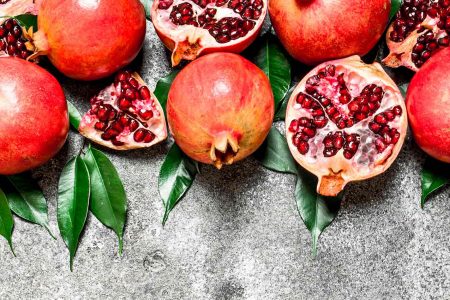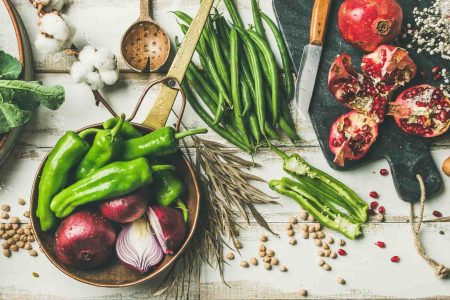As we enter into autumn with its glorious colors and cooler temperatures, I begin to have visions of warm nourishing soups and medicinal herbal teas and infusions. Fall is a time of transition – cooler, drier air, and wind – the wind which soon will usher in those cold wintery days. It’s a lovely time to slow down and savor the simplicity of life – watch the falling leaves and enjoy a steamy cup of immune broth or your favorite blend of herbal goodness. The following are some tips to stay healthy as we approach cold and flu season. Prevention is always best, but if you do get sick, get plenty of rest, stay hydrated with warm drinks, and try some of the herbal remedies suggested.
Eat Seasonal Nutritious Foods
Staying in harmony with the seasonal changes is one of the best ways to maintain our health and well-being. As fall is a time of dry air, moisture is our friend. Hearty soups with warming spices (Check out these recipes Smoked country soup, Cream of tomato soup with Indian spices, Tahini Squash soup) grains, legumes, root veggies, winter squash, baked apples or pears are seasonal favorites. Avoid processed foods. Eat foods high in antioxidants – a colorful variety of fruits and vegetables. Adding spices such as ginger, cumin, turmeric, oregano, rosemary, thyme, and cinnamon to your food will help improve digestion, and boost your immune system with their antiviral and antibacterial properties. Turmeric is especially important as it’s a powerful antioxidant – free radical scavenger. Besides cooking with it, try a delicious cup of Golden Milk.

Strengthen Your Gut
Keep your gut healthy since 70 percent of your immune system is in your gut microbiome! Be sure to continue to eat lots of dark leafy greens, berries, onions, and garlic. You can also add fermented foods which contain prebiotics and probiotics. Eat mushrooms! Mushrooms are prebiotic so also improve your microbiome. Mushrooms are high in glutathione (an immune-enhancing antioxidant which supports the liver). Mushrooms have been used in traditional Chinese medicine (TCM) for centuries to treat a variety of illnesses, maintain health, and prevent disease.
Maintain a Daily Routine
Establishing a daily routine is key in maintaining health. Rise early and take advantage of the silence, stillness, and peace found in those early morning hours with daily meditation. Keep the same meal times and exercise schedule. Keep an 11-hour window of eating. It gives time for our bodies to digest properly (If breakfast is at 8 am, last meal of the day should finish by 7 pm). This time restricted feeding (TRF) or intermittent fasting has shown many health benefits including prevention of metabolic disease (https://doi.org/10.1016/j.cmet.2012.04.019). Get fresh air! Enjoy morning and evening walks in the cool, crisp air. Exercise is an immune-booster. Research shows that folks who exercise regularly report fewer colds. Try to get to bed by 10 pm so your body will get the rest it needs. Sleep is vital for your brain and every organ in your body.
Sleep allows your body to repair. As the days get shorter, take your cue from the sun and go to bed earlier. Get at least 7 hours of sleep.
Keep Your Sinuses Moist
Keeping your sinuses moist can help prevent colds. Saline nasal rinses or sprays are great to use daily. Gargle with salt in warm water, especially at the earliest tinge of a sore or dry throat. You may want to consider using a humidifier to keep your environment moist. Stay hydrated – drink lots of warm drinks.
Immune-Boosting Vitamins
Check your vitamin D level. Keeping it at an optimal range (between 50 and 80ng/mL) will help prevent disease, and seasonal affective disorder (S.A.D.). Ask your health care practitioner to order a 25-hydroxy vitamin D to determine your levels. If it’s low, get a high-quality vitamin D supplement and monitor your levels. Be sure to get plenty of foods high in vitamin C also. Amla or amalaki is a super antioxidant and very high in vitamin C. Add amalaki powder to your green smoothies – a teaspoon daily is a good dose for prevention. At the first sign of a cold, take high doses of vitamin C. Taking 6 to 8 grams/day can reduce the duration of a cold (https://www.sciencedaily.com/releases/2017/03/170330115246.htm). Start with 1 gram of vitamin C and continue to take 1 to 2 grams every hour or so until you reach “bowel tolerance” (start to have loose stools). Zinc has also been shown to shorten the duration of a cold. Be sure to include foods high in zinc in your diet – pumpkin seeds, spinach, nuts, and beans.

Herbs to Support Immune Health
Herbs can be used both for prevention to strengthen the immune system – keeping you from becoming infected – and also during a cold or flu to overcome the infection more quickly with fewer symptoms. The following are some suggestions:
Astragalus root is a Chinese herb that has been used for thousands of years during cold and flu season to boost the immune system. The dry slices can be thrown into soups and stews. (Note: Astragulus should be used before or after an illness and not during the acute phase).
Garlic is one of nature’s oldest remedies. Historically, it was used as a panacea for the bubonic plague. Now a days, it’s celebrated for its ability to support digestion, the immune system, and the heart. Raw garlic is delicious in homemade hummus and fresh herbal pesto. When cooking garlic, chop it up and let it sit on the cutting board for 10 to 15 minutes to trigger the release of allicin and the potent medicinal sulfur-like volatile oils. If you love raw garlic, it’s a great addition for flu and cold season. You can make garlic honey or garlic vinegar. Maybe you’ve heard of fire cider. Herbalist Rosemary Gladstar was the first to give us the fire cider remedy decades ago. Watch her make it on YouTube (https://youtu.be/JU8U0bDmXks). Since then, recipes galore can be found on the web. Fire cider is a spicy vinegar – apple cider vinegar with a base of horseradish, lots of garlic, onion, ginger, a pinch of cayenne, and honey. Whole lemon can be added. It’s a great remedy for sinus infections and may stave off a cold if taken preventively. If you always feel cold, fire cider may be a good winter remedy for you. If you have more of a hot constitution, fire cider may be too heating for you. Think about the energetics of your body and the herbs!
Elder is respected as a magical and sacred tree by various cultures of Western and Northern Europe – protector of the garden, the tree of transformation – guardian of the 13th month of the Celtic tree calendar. According to folklore, the spirit or goddess (Hylde Moer or Elder Mother) believed to be living in the tree, watched over it and had the power to bestow many blessings and protection if the tree was lovingly cared for and not mistreated. In Denmark, it is said that if you stand under an elder tree on a mid-summer evening, you will see the king and queen of fairyland riding by with their entourage of elves, dwarfs, and nymphs playing pipes made of elder stems. Hippocrates called the elder “his medicine chest,” as early as 400 BC. The entire plant can be used for medicine – roots, leaves, the creamy white flowers, and the dark bluish-black berries. What a precious gift that nature has provided for us! Most of us are familiar with the berries of the elder that are made into a syrup and now found in every pharmacy.
Elderberry is famous for its effectiveness against the flu. Several studies have shown flu patients recovering in two to three days if they start using it early and frequently. Check out the elderberry syrup and other elderberry recipes on the Veggie Fest website.
Fresh ginger root tea with lemon and honey is a wonderful cold and flu remedy. Fresh ginger helps fight off viral infections, thins mucus to help expectoration, and warms the body. Lemon adds vitamin C and honey will soothe a cough. Add a pinch of cayenne for an added kick!

Sage and thyme are potent antimicrobials. Enjoy them as individual teas or combined together. Sage is grounding, relaxing, and great for sore throats and laryngitis. It dries up excess mucus. A hot cup of thyme tea will get rid of excess mucus and calm coughing spasms. Thyme is the best herb for stimulating the thymus gland, a major gland of the immune system.
Yarrow, peppermint, and elderflower tea is an old gypsy remedy for colds and flu. Yarrow and elderflower are powerful diaphoretics that will induce sweating and reduce fever. Use equal parts and drink several cups a day for the flu. Add rosehips for a vitamin C boost.
Elecampane root is great for a wet boggy cough. It’s a stimulating expectorant. You can make elecampane honey with the fresh root. The honey will soothe the throat. Mince up enough of the root to fill a jar half way. Add the raw honey to fill the jar. Let it sit for a minimum of 3 days – it will last a long time. Take a spoonful as needed.
Marshmallow root is a cooling, moist demulcent and a wonderful way to soothe a dry throat and a dry hacking cough – the cough you get at the end of an infection that keeps you up at night. Make an infusion with the root. Add a cup of the dry root to a quart mason jar. Fill with filtered lukewarm water. Let sit for four hours or overnight. Strain and sip as needed.
Final Tips
Naturally, good hygiene is important for prevention. Cold and flu viruses are spread by mucus droplets in the air, on doorknobs, or elevator buttons. Anything the droplets land on is a potential spreader, so wash your hands regularly. Avoid touching your face (mouth, nose, eyes) since viruses enter the body through mucus membranes. A Berkley study showed the typical hand to face connection is made an average of 16 times per hour!
If you do get the flu, stay in bed and stay hydrated. A general rule is one day of rest for each day of fever. So, if you had a fever for four days, take four more days of rest. Not giving your body a chance to rest and recover leaves you susceptible to secondary infections. Give yourself time to nurture and nourish yourself back to vibrant health!
~ Linda Scotti, RN, BSN, MA







